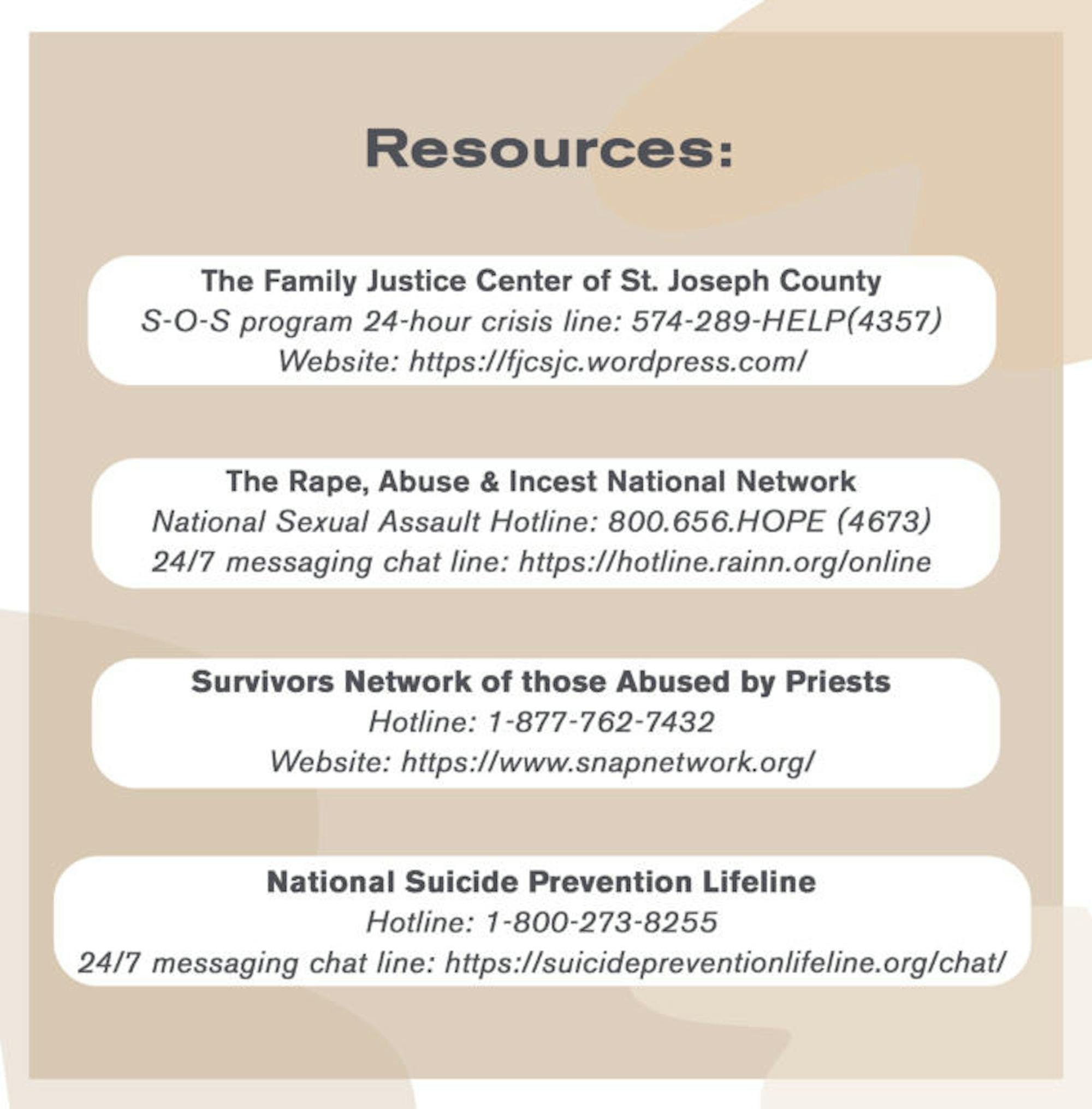Editor’s note: This story includes descriptions of sexual abuse and violence. A list of sexual assault reporting options and on-campus resources can be found on the Notre Dame, Saint Mary’s and Holy Cross websites.

Diane Park
Diane Park
We spoke about the flaws in the American education system and how American history, specifically Black American history, is inadequately taught. While there are several chunks of Black history that were simply removed from the American history curriculum requirement, many of the facts we do learn were either half-truths or blatant lies.
Most of us are aware that early slaves were stolen from their homelands and brought to America through the transatlantic slave trade to work the lands of white plantation owners. We were taught slaves were beaten and whipped as punishment by white slave masters and overseers, and slave women were raped to produce more slaves after the transatlantic slave trade was abolished. We learned that President Abraham Lincoln freed the slaves with the 13th Amendment in 1863. After the Emancipation, we learned Jim Crow was a thing, the civil rights movement happened, Martin Luther King Jr. had a dream and magically, after Black Americans received the right to vote, institutionalized racism simply “vanished.”
This watered down, spark-noted, sugar-coated version of Black American history perpetuates the extremely false narrative of the institution of slavery. Slavery was not simply a flaw of Man that can be dismissed under the “just the way things were” category in the story of American History. Slavery and the treatment of Black people in the Americas was a sadistic, ungodly, abominable practice based in racism, torture and a blood thirst for control.
We know that white slave masters and overseers had intercourse with slave women, but we were not taught about breeding farms, where slave women were repeatedly raped to produce more slaves, or how Black slave boys and men were beaten unconscious and raped by their owners in front of their families. We did not learn that the genitalia of Black boys and men were mutilated or gouged completely from their bodies as a form of punishment.
We know Black Americans were lynched, but we did not learn that their limbs were ripped from their bodies as they swung from their necks. We were not taughtthat metal hooks were pierced into slave’s lungs before they were hung, or thatsome victims were burned alive. We learned that slaves were whipped for not meeting their labor expectations or other punishments, but we were not taught they were whipped daily to ensure submission and obedience. We did not learn slaves were boiled in sugar water, or that Black slave skin was used as leather for shoes and instrument cases, or that slave teeth were used as dentures for white Americans.
No, George Washington’s teeth were not made from wood.
While I can’t speak for the rest of the Notre Dame student body, my roommates and I didn’t learn about any of these horrific fates for Black slaves in any history class we have taken in high school or college. It wasn’t until the international outburst highlighting systemic racial inequality erupted the nation in the summer of 2020 that I began hearing about the sadistic tortures of the institution of slavery.
I stumbled upon trinkets of information from history buffs who specifically study this section of American history, and I realized I’d have to do my own research on the topic. Considering the few details I explained previously are not an exhaustive list, what other barbaric horror stories are hidden in Black history? How much of the PG version of our past protects the doors of our horrifically unimaginable, but factually accurate stories of American ancestry that clearly correlates to the traumas of the Black experience today?
Black Americans are asked why they can’t leave the sins of slavery their ancestors endured in the past, and some white Americans believe that Black citizens are demanding them to take responsibility for the sins of their ancestors. However, neither side of this argument truly knows the extent of torture, brutality, humiliation and generational mental and emotional damage Black Americans have suffered because it isn’t extensively or honestly provided for any of us.
We can’t forgive the sins of slavery because we are only beginning to understand how deep the depths of horror were during slavery. The slivers of truth we received in high school dilute the real experience, and the little we can find through personal research only add to the list of horrific possibilities of what else happened.
While our warped sense of history distorts our reality in the present, how will it dictate our future? We are told to look to our past to navigate through our future, but if we are unaware of the truths of our past, how can we be sure that we are capable of providing a better future? What other details in other subsections of American history are we oblivious to? Do we have to endure yet another national outrage to birth the truth from the depths of the Land of the Free?
Sydni Brooks is a junior at Notre Dame studying English and gender studies. She is originally from Cincinnati, Ohio, and calls Flaherty Hall home on campus. With equal passions in writing and helping others, she hopes to serve her community well in her future. She can be reached at sbrooks2@nd.edu or @sydnimaree22 on Twitter.
The views expressed in this column are those of the author and not necessarily those of The Observer.









